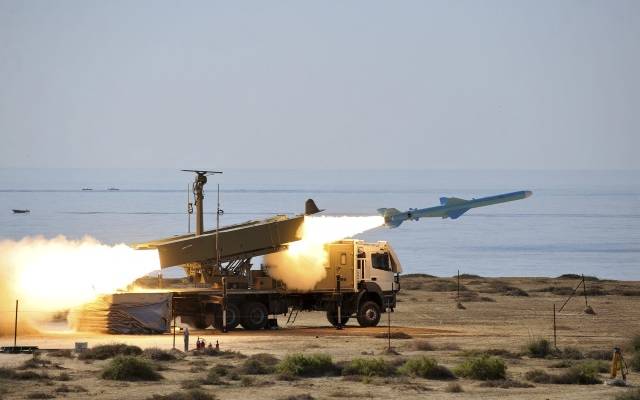Iranian officials have repeatedly stressed that the country will not hesitate to strengthen its military capabilities, including its missile power, which they say is meant for defense. They also insist that Iran’s defense capabilities will never be subject to negotiation, defying UN sanctions and protests by the international community.
Iran has again test-fired a high precision ballistic missile which can strike at Israel, Iran’s Tasnim news agency reported Monday.
The missile reportedly has a range of 2,000 kilometers and pinpoint accuracy of 8 meters, Deputy Chief of Staff of the Iranian Armed Forces Brigadier General Ali Abdollahi announced.
“Two weeks ago, we test-fired a missile with a range of 2000 kilometers and a margin of error of eight meters,” Abdollahi said in a scientific conference in Tehran on Monday.
He refused to provide further details on the missile or its name.
He said that Iranian Armed Forces has allocated 10 percent of its budget to research projects aimed at strengthening Iran’s defense power. Iran categorizes its missile program as a “defense” necessity.
Iranian officials have repeatedly stressed that the country will not hesitate to strengthen its military capabilities, including its missile power, which they say is meant for defense. They also insist that Iran’s defense capabilities will never be subject to negotiation, defying UN sanctions and protests by the international community.

Supreme Leader Ayatollah Ali Khamenei. (Office of the Iranian Supreme Leader via AP)
In late March, Iran’s Supreme leader Ayatollah Ali Khamenei underscored the need for boosting Iran’s defense capabilities, claiming that “enemies” are “making use of every tool available” to undermine the Islamic Republic.
Khamenei said at the time that if the Islamic establishment seeks technology and negotiations but lacks defense might, it will have to buckle in the face of any weak country posing threats.
In March, Iran’s Revolutionary Guard Corps (IRGC) test-fired two types of Qadr ballistic missiles during large-scale drills, codenamed “Might of Velayat”.
The two ballistic missiles, Qadr-H and Qadr-F, were launched from the heights of East Alborz Mountains, north of Iran, and hit targets on the Makran coasts, southeast of the country.
While Iran maintains its missile program is for defensive purposes, the West fears it is being developed to carry nuclear warheads, and therefore is subject to UN Security Council resolution 2231 that calls on the Islamic Republic not to develop missiles designed to be capable of carrying nuclear warheads.
Responding to Iran’s missile tests, Samantha Power, the US’ envoy to the UN, said Iran’s recent ballistic missile launches are “provocative and destabilizing.”
She condemned Iranian military leaders’ reported claims that the missiles are designed to be a direct threat to Israel.
Iran has threatened several times to annihilate Israel with Its missiles.
In January, Washington imposed sanctions against businesses and individuals linked to Iran’s missile program over a test of the medium-range Emad missile carried out in October 2015.
By: United with Israel Staff
